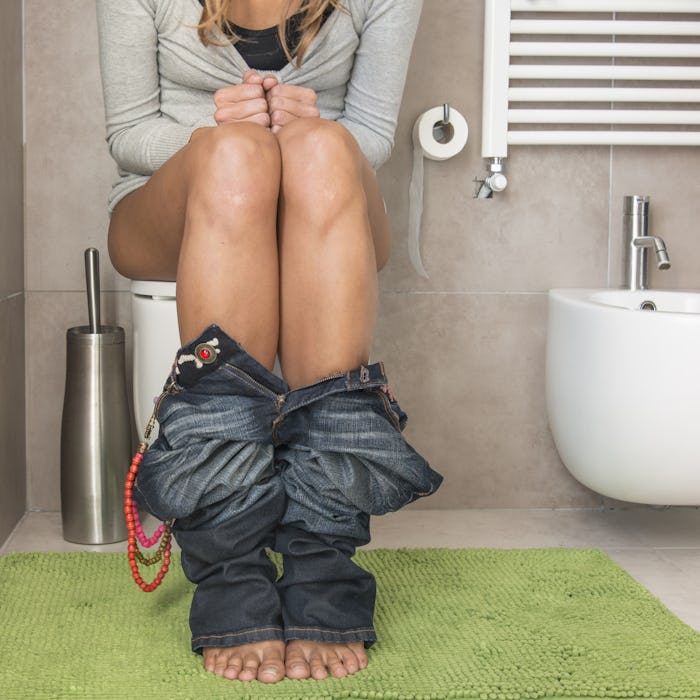Life

Is Constipation An Early Pregnancy Symptom? Everything Comes Down To Poo (Or Lack Of)
Typically, your first thought when having trouble in the poop department is not, "I wonder if I'm pregnant?" You may be more likely to blame things like diet or medicine for clogging up your pipes. But as it turns out, it may be a different kind of bun in your over that's causing this problem. Even though it's not as talked about as others, constipation is an early pregnancy symptom and could be one of the firsts signs to tip you off that you've conceived. Being aware of this red flag early on can help you begin prenatal care and learn how to safely handle the issue.
If you've been trying to get pregnant, all the iron in your prenatal vitamins could be to blame, according to the website for What To Expect. This mineral is known for causing constipation, and may be the main culprit behind the problem. But don't go tossing the bottle into the trash — your body (and the baby) still needs all the good stuff those prenatal are providing and there are other ways to get relief. Like noshing on some of the foods Everyday Health's website recommended for relieving constipation, such as berries, beans, and whole grains.
But what if you weren't trying to get pregnant and can't blame iron-heavy prenatals? Well, feel free to point the finger at pregnancy's most blamed villain: hormones. As Baby Center reported, increased progesterone causes pregnancy constipation, because it causes the smooth muscles — which included the digestive track — in the body to relax. According to Parents magazine, your body starts making more progesterone right away when you become pregnant, which is why many women experience constipation so early on. Usually, this symptoms shows up with a bevy of others such as nausea, vomiting, heartburn, and reflux, all of which are side effects of the progesterone.
One last point to consider is your liquid intake. As Parents reported, once you become pregnant, your blood supply increases. This rise in blood requires you to intake more fluids than usual. Becoming dehydrated can cause many problems, constipation included, so be sure to start chugging the water once you notice it's been a few days since you dropped the kids off at the pool.
If your constipation persists, it's important to know what you can and can not do to treat it when pregnant. According to the American Pregnancy Association (APA), not all constipation remedies can be used when pregnant. Although the APA always recommends consulting with your OB before taking any medicine during your pregnancy, laxatives are always a no-no, because they have the potential to bring on contractions. Try changes in diet and increasing your water intake first, to see if that does the trick.